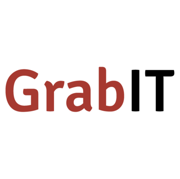
There are 5 Companies in Slovenia
that provide Go development Services!
Slovenia's membership in the EU is and will be a key driver of ICT growth, facilitating increased trade between European markets. Over the next years, the process of EU convergence, which still has far to go, will drive spending on IT projects.
Discover Top IT Companies in Slovenia specialized in Go and other related services. Find the best IT service providers for your projects.
Go, also known as Golang, is an open-source programming language created by Google. It is designed for simplicity, efficiency, and concurrency, making it a versatile choice for building a wide range of applications, from web services to system software.
Handpicked companies • No obligation to hire • 100% risk-free
Explore Top Go development Companies in Slovenia
zerodays is a software development company specializing in end-to-end custom solutions based in Ljubljana, Slovenia.
Since 2007, Devvela has helped businesses that range from daring startups and local brick-and-mortars to Fortune 100 enterprises leverage the power of...
Services:
Sportradar, the leading global sports technology company creating immersive experiences for sports fans and bettors.
Filter Go development Companies in Slovenia by Cities
Find the right tech company near you or from a specific city. Some of the best companies might be located in smaller cities.
Find more Go development companies around the world
TechBehemoths is the world's most advanced and user-friendly platform to match IT Companies with real clients without hustle.
The IT Industry in Slovenia: Companies, Insights & Data
Slovenia's membership in the EU is and will be a key driver of ICT growth, facilitating increased trade between European markets. Over the coming years, the process of EU convergence, which still has far to go, will drive spending on IT projects. Funds such as the EU Cohesion fund are already providing funding for IT projects related to modernization initiatives in both public and business segments. As the government remains the major investor in ICT in Slovenia
The combined government sector also remains the largest spender on IT products and services, unsurprising, bearing in mind that the state still owns a wide range of companies across sectors like transport, telecoms, oil and gas, and insurance. Despite all the difficulties, the ICT sector in Slovenia is one of the best sectors of the Slovenian economy, especially since a large part of it is focused on exports. The IT Services market in Slovenia is predicted to be worth $528.74 million in 2025, reported to Statista.
Why Work With Slovenian IT Companies
IT companies from Slovenia are relatively new to the market and rely on the already existing infrastructure when providing web & software services and solutions to the local and international markets. Based on a report of the Belgian company ”Wallonia”, Slovenian IT companies managed to implement the newest IT standards and are specialized in the subsector of software development, more than the web, and cloud computing.
The choice is based on local market demand, as 36% of products and services provided by Slovenian IT companies are sold to the government and implemented in the local public sector, which is supposed to increase the digitalization rate of the country overall. Nonetheless, another 64% of IT services are designed for regional export and are considered a part of the regional IT backbone in the western Balkans.
What to Pay Attention to When Working With Slovenian IT Companies
It is important to know that most Slovenian IT companies were at the startup phase in 2013, and this makes them new and probably inexperienced in providing competitive services on the global IT market. However, working with Slovenian IT companies may be an interesting experience after all.
How Reliable Are Slovenian IT Companies
Slovenian IT companies are at an early stage of creating their reputation on the global market. Since not so many IT companies located in Slovenia managed to highlight their performance, it is challenging to relate to how reliable they are. But taking into account that in the XXI century all companies have a chance to create a name for themselves, most probably Slovenian IT companies will manage to break the ice, and why not - make their country an important regional IT hub.
How Well Does the Slovenian IT Industry Relate to the Neighboring Countries?
In the regional background, the Slovenian IT industry is neither a shiny country nor an underdeveloped IT environment. But it is one of the promising destinations for international clients and foreign companies ready to invest or work with Slovenian IT companies, and bring the entire region closer to what the Western European IT industry is.
What is Go and what are its benefits for your projects?
Go, also known as Golang, is an open-source programming language created by Google. It is designed for simplicity, efficiency, and concurrency, making it a versatile choice for building a wide range of applications, from web services to system software.
More than 363 verified IT companies leverage Go in their development projects. These companies range from startups to tech giants like Google, Uber, and Dropbox. They appreciate Go's speed, reliability, and ease of use for building scalable and performant software.
Go service providers rely on various tools and technologies to enhance their development process. Some commonly used tools include the Go compiler, which transforms Go code into executable binaries, and the Go standard library, which offers essential packages for building applications. In terms of deployment, containerization technologies like Docker are frequently used to package Go applications for consistency and portability.
You may be wondering, how is Go Different from C, Rust, and Java. So, below we’ll try to show you more about the differences that exist between them:
-
Go vs. C: While both Go and C are low-level languages, Go offers modern features like garbage collection and memory safety, which simplify programming. Go is also more concise and expressive than C, making it easier to read and maintain. But if you think your business needs companies that also specialize in C, you can find them on this page
-
Go vs. Rust: Rust emphasizes memory safety and control without sacrificing performance. While Go offers simplicity and readability, Rust provides fine-grained control over memory and is suitable for systems programming with a focus on safety.
-
Go vs. Java: Java is a high-level language often used for building enterprise-level applications. It relies on a virtual machine (JVM) and is known for platform independence. Go, on the other hand, compiles native code, offering better performance and efficiency for certain use cases.
Languages related to Go in terms of use cases and features include Python, Ruby, and Node.js. These languages, like Go, are suitable for building web services and backend applications and are known for their developer-friendly features. If you need these programming languages in addition or instead of Go, just click on their corresponding words above to find verified vendors providing those services.
When selecting IT companies that use Go for your project, consider factors such as the company's experience with Go, their portfolio of past projects, client references, and their understanding of your specific project requirements. Look for companies that align with your project's complexity, scalability needs, and budget.
Go service providers are essential for various project types, including:
-
Web Services: Go is well-suited for building RESTful APIs and microservices due to its excellent performance and simplicity.
-
Networking Applications: Go's concurrency support makes it ideal for developing network-related software such as servers and proxies.
-
Cloud Applications: Go's efficiency and speed are valuable for building cloud-native applications and serverless functions.
-
System Software: Go can be used for developing system utilities, command-line tools, and operating system components.
Go is a versatile language, and its speed, simplicity, and efficient concurrency model make it suitable for a wide range of projects, making it an excellent choice for modern software development.




